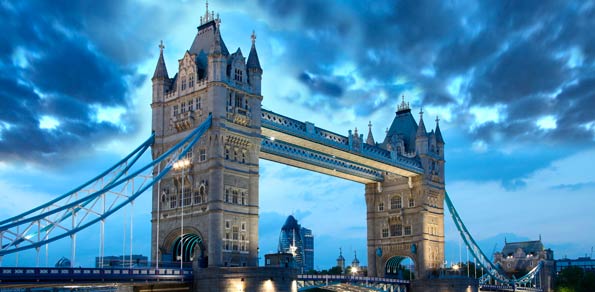Despite its inevitability even political agnostics must hold their collective heads in their hands with regards to the British prime minister’s veto of the agreement reached on Friday morning by twenty three of Britain’s European peers and allies.
Cameron will now come back to the UK and no doubt be greeted by his back benchers who will no doubt twizzle their handlebar moustaches, slap him on the back for showing “that Jonny foreigner who’s boss” to then retire to their private clubs to order trebles all round. A stereotypical out of touch description of the party members who have goaded the UK’s prime minister into making such an ill informed and out of touch decision? Well if the cap fits etc. particularly if that’s a cap worn to “go on a shoot at the weekend”..
The fact that the unelected Prime Minister of the UK decided to go ‘Tory native’ at a time when the Eurozone was on it’s knees betrays his and his party’s real motives, it also demonstrates once again that he simply rides roughshod over the Liberal Europhile element within the coalition government. Whilst Euro ministers attempt to desperately salvage the project the UK sought to take advantage of the situation and have instead been left embarrassed and isolated. Bravo..
Europe remains united behind the European project and the Euro on Friday despite the UK mischievously attempting to engineer an ideological rift by putting it’s broken oar into the choppy waters. In an historic moment, attempting to build a fiscal union to preserve the euro, the majority of countries led by Germany and France have agreed to move ahead with a separate treaty, leaving Britain isolated with Hungary.
Twenty-three of the 27 European leaders have agreed to pursue tighter integration with stricter budget rules for the single currency area, however, Britain’s prime minister stated he couldn’t accept the proposed amendments to the EU treaty after failing to secure spurious concessions that had little to do with the policy matters at hand.
After ten hours of exhaustive talks, all seventeen members and users of the euro zone’s shared currency (and six countries that aspire to join the mechanism) resolved to negotiate a new agreement which will run alongside the EU treaty having at its core a much stricter deficit and debt regime in order to insulate the euro zone further against the debt crisis.
German Chancellor Angela Merkel and French President Nicolas Sarkozy wanted all EU countries to agree to changes within the Lisbon treaty in order that stricter budget and debt rules for eurozone states could be enshrined in the Euro bloc’s law and treaty. Britain, outside the euro zone, refused to back the proposition, wanting guarantees protecting its financial services industry. Sarkozy described British Prime Minister David Cameron’s demand as unacceptable. Sarkozy and Merkel said the intention is to forge an intergovernmental treaty amongst euro zone countries and aspirants. Only Britain and Hungary vetoed. Sweden and the Czech Republic said they would consult their parliaments.
“This is a summit that will go down in history. We would have preferred a reform of the treaties among 27. That wasn’t possible given the position of our British friends. And so it will be through an intergovernmental treaty of 17, but open to others.” – Sarkozy.
“It means reinforcing our rules on excessive deficit procedures by making them more automatic. It also means that member states would have to submit their draft budgetary plans to the (European) Commission. An inter-governmental treaty can be approved and ratified much more rapidly than a full-fledged treaty change, and I think speed is also very important to enhance credibility.” – Herman Van Rompuy, the president of the European Council and the summit chairman.
As this series of meetings (billed as the last chance to save the euro) continue financial markets still remain unconvinced by policymakers’ efforts to tackle the region’s problems. EU leaders have now finally taken critical decisions on the permanent bailout fund, the European Stability Mechanism, which will now come into force in July 2012. The ESM’s capacity will be capped at 500 billion euros, falling short of what had been previously suggested as possible and suggested as necessary before the summit. The facility will not however get a banking license as Van Rompuy originally proposed due to firm and resolute German opposition. It’s agreed that EU countries will provide circa 200 billion euros in bilateral loans to the International Monetary Fund (IMF) to help it tackle the crisis, with 150 billion euros of that sum coming from the euro zone countries.
“We can be very pleased at the result,” IMF Managing Director Christine Lagarde said as she left the summit.
It would appear that the summit has agreed two key issues:-
[unordered_list style=”tick”]
- Eurozone countries will now provide up to €200bn in extra resources to the International Monetary Fund to help countries in difficulty.
- The eurozone’s two bailout funds, the European Stability Mechanism (ESM) and the European Financial Stability Facility (EFSF), will be managed by the European Central Bank.
[/unordered_list]
Whilst not the full resolution and despite the fact that the summit so far falls far short of any overall solution to the current crisis, far more progress appears to have been made at this series of meetings than during previous attempts to resolve the crisis. That’s understandable given the ultimatums issued by ratings agencies earlier in the week will have no doubt concentrated EU leaders’ minds. The fact that there has been a meeting of minds should be a reason of celebration despite the fact that the marathon, as Ms. Merkel refers to the journey of resolution, has only just begun. The fact that one prominent runner, feigning injury, has pulled out before the journey began will be forgotten when the history of the result is finally recorded.






Comments are closed.